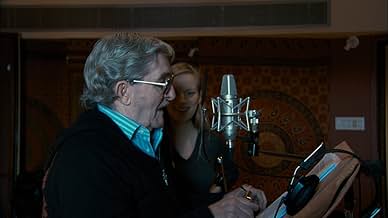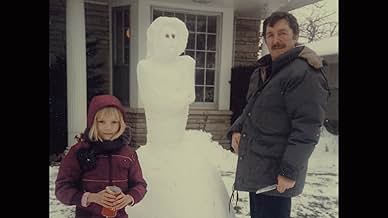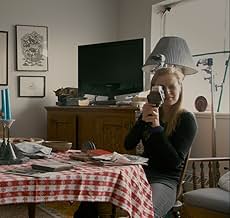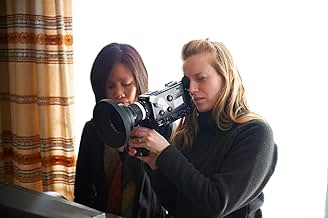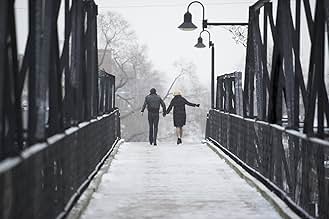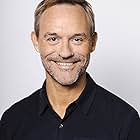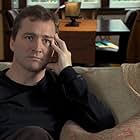A film that excavates layers of myth and memory to find the elusive truth at the core of a family of storytellers.A film that excavates layers of myth and memory to find the elusive truth at the core of a family of storytellers.A film that excavates layers of myth and memory to find the elusive truth at the core of a family of storytellers.
- Awards
- 25 wins & 44 nominations total
- Self - Storyteller
- (as Geoff Bowes)
- Director
- Writers
- All cast & crew
- Production, box office & more at IMDbPro
Featured reviews
Stories We Tell works a unique twist on the documentary format and allows the audiences into the life of the family and friends who knew the filmmakers mother, Diane Polley. An eccentric ball of energy with the appearance of an open book, she might have really been a big mystery and her secrets could cause a rift throughout all those connected. Family and friends from all corners step up to the plate and what's heard are a melding of scripted order and the unscripted nature of each individual and their memories of the events that unfolded. At times it's an interview, at others it's a humorous interrogation; we witness the mystery unfolding in a truly compelling, warm and emotional fashion. It's a wonderful case study on human beings and how we shape ourselves throughout a lifetime and the events that can change our lives forever. It's fascinating to see how we all perceive moments and how our memories contain them. Different characters have different takes and yet the feelings resonate the same.
Sarah Polley took the right path and remained on the sideline and behind the camera until it was absolutely paramount. The real people tell their stories and actors portray history with an uncanny authenticity. It delivers the reality and the real people involved without bogging down the narrative. This is rich and affecting storytelling at it's finest.
It is definitely a brave personal project for Sarah Polley. And it's important to not read any of the spoilers. It is possibly the most intriguing use of film recently. It makes you question the reality of her story, and given some personal reflection, it'll make you question the reality of your own story.
On this level I liked the film and I thought it worked well, but I have to disagree with the comments made by many in regard what it else it does. Many have praised the film for showing how stories get fragmented and twisted and how perspectives etc influence their telling and indeed Polley herself lays this out as the goal for the film when she is asked towards the end. Perhaps it is because she said it so clearly that some assumed she'd done this and perhaps it is also the reason why it stood out to me that she didn't, even though I liked what she had done with it. The problem with this goal is that, while the story over the past few decades may have been half-told, twisted and gradually revealed with different people knowing or thinking different things, in the film this is not the case at all. Indeed the thing that makes the story so engaging is that it is so well structured to be gradually delivered, be clear and be interesting on its impact on the family. Everyone contributing knows the full story and while they may have different opinions on small things or motivations of others, there really isn't something like Rashomon here where the same thing is different from different angles. There are no questions left, no doubt at any point really – we get introduced, follow the story quickly and efficiently and are left at the end with everything neatly done.
The irony is that for me the film works well like this. I enjoyed the story and how well told it was and I found the contributors to be honest, human and engaging. It is a very personal and human film and this was the quality I took from it. I still had no reason to care about this specific family over any other, but it worked nonetheless. To me it is almost a shame that Polley laid out this alternative goal because she really doesn't get anywhere near achieving it and indeed if she hadn't said anything about it I would never have guessed such an objective was ever on the table.
It works for what it is, but in terms of its own goals it is unsuccessful – but it still worked for me.
All that being said, it does not take away anything from the fact that "Stories We Tell" is a fascinating concept. If nothing else, it works as a brilliant think-piece on subjectivity of memories and distorted truth by different perspectives.
Storyline
Did you know
- TriviaSarah collected all the stories first. She went through all the period footage she had available. After that, she hired actors to recreate and reenact bits filmed on 8mm to complete the missing period footage. This explains why there is always "proof" of all the raconteurs stories. It works rather as flashbacks to place us in situation.
- Quotes
Michael Polley - Storyteller: When you're in the middle of a story, it isn't a story at all but rather a confusion, a dark roaring, a blindness, a wreckage of shattered glass and splintered wood, like a house in a whirlwind or else a boat crushed by the icebergs or swept over the rapids, and all aboard are powerless to stop it. It's only afterwards that it becomes anything like a story at all, when you're telling it to yourself or someone else.
- ConnectionsFeatured in At the Movies: Venice Film Festival 2012 (2012)
- SoundtracksTranquility
Written by Abraham Lass
From PLAY ME A MOVIE (Folkways Records/AH 3856)
Courtesy of TRF Production Music Libraries and Alpha Music Inc. and Smithsonian Folkways Recordings.
© 1971 Used by permission.
- How long is Stories We Tell?Powered by Alexa
Details
- Release date
- Country of origin
- Official sites
- Language
- Also known as
- Истории, которые мы рассказываем
- Filming locations
- Production company
- See more company credits at IMDbPro
Box office
- Gross US & Canada
- $1,600,145
- Opening weekend US & Canada
- $27,053
- May 12, 2013
- Gross worldwide
- $2,641,053
- Runtime1 hour 48 minutes
- Color
- Sound mix
- Aspect ratio
- 1.85 : 1
Contribute to this page







